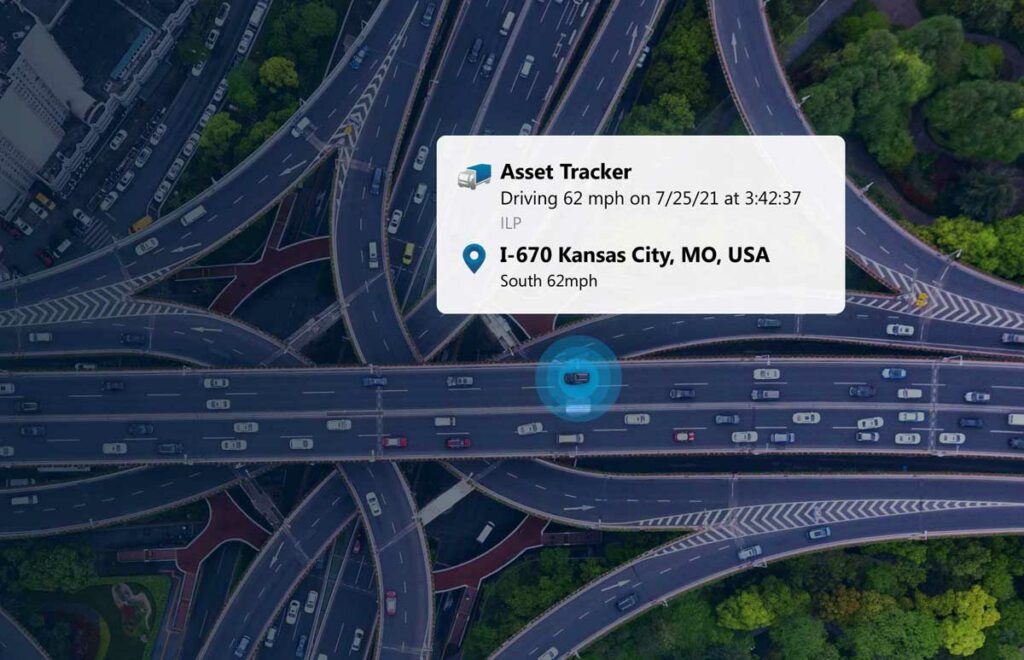October 7, 2021
Telematics is an innovative system particularly used in fleet management. It is a combination of different sciences, namely: telecommunications, vehicular technologies, electrical engineering, computer sciences, and tracking devices.
It allows the collection of data from a device attached to an asset, where this data is captured by either a cellular network, internet connection, or through satellite communication systems, and is then sent to a computer system that is readable.
Basically, telematics allows fleet managers to gather data from an asset say a truck, and records information about that truck, such as GPS location, and receives this information on a computer system in real-time.
Some examples of this data can include the following:
- Average speed
- Idle time
- Fuel usage
- Tracking information
- Accelerations
- Braking tendencies
- Tire pressure
- Battery life
- Engine status
Using the information you receive, you can further analyze these data to enable you to have a better understanding of the state and performance of your fleet.
Telematics allows fleet managers to better operate logistics and truck performance for improved overall fleet management.
How Does Telematics Work?
So how does a telematics system work? A telematics system involves a tracking device, a communications network, and a computer system.
It works in 4 simple steps
Step 1:
A vehicle tracking device is installed in a vehicle. This device sends, receives, and stores data regarding the occurrences of the truck: such as GPS location, fuel consumption, battery life, and other information.
Step 2:
Data or the information acquired by the device is then transmitted via a cellular or satellite network.
Step 3:
This information is then sent to a server that interprets the data.
Step 4:
The server then sends the data into a computer system, an app, or any software the fleet manager uses. The data is received in real-time and can be viewed on any computer, app, or mobile device.

How Telematics Can Help Your Business
Telematics is suitable for any business that deals with a fleet of vehicles. Any company that uses any means of transportation can take advantage of the benefits of adopting a telematics system.
Some of these businesses can include delivery companies, food companies, construction businesses, waste management fleets, or emergency organizations.
With a telematics system, the following benefits are enjoyed by your business:
1. Improved Fuel Consumption
Telematics can help your business optimize your fleet, like decrease fuel costs by identifying which routes take more time to reach; identify areas of waste, and avoid traffic. With better routes, you can ensure the timely delivery of your deliverables, as well as decreasing fuel consumption at the same time.
2. Improved Productivity
Because fleet managers receive information on driver performance, they can call out drivers who are spending a lot of time idling, drivers who are taking inefficient routes, and drivers who are displaying risky behaviors that cause delays, and drivers who deviate from given instructions.
The capacity to track your assets allows you to receive data in real-time so you know exactly what time your deliverables arrived, where it is, and what’s causing delays. From this data, you have a better grasp of your fleet performance, so you can make necessary changes to make optimal use of your fleet.
3. Improved Safety
There are routes that are riskier than others, and data from your telematics system can show you which roads are more prone to accidents on the road. When you have this information, you can change your routes, or avoid certain schedules such as a rush-hour or early morning deliveries, when there’s a higher risk of accidents happening. With data like this, you can improve your fleet’s safety records, as well as make roads safer for communities.
4. Longer Life of Your Trucks
Telematics can also provide you with data regarding your tires, batteries and truck engine. With this information, you can prevent potential major problems that can cost your company. You can even set a maintenance schedule on your trucks, so you can prevent damage before it happens.
The Future of Telematics
The technology of telematics is ever-changing. Every day, engineers are devising innovative technologies to better improve the capacity of telematics systems.
Better apps, better tracking, and better data analysis are seen to occur as this technology is being improved on a daily basis.
More and more fleet companies are recognizing the need for this technology to control costs, improve productivity, improve accountability, and to maintain compliance with government regulations.

